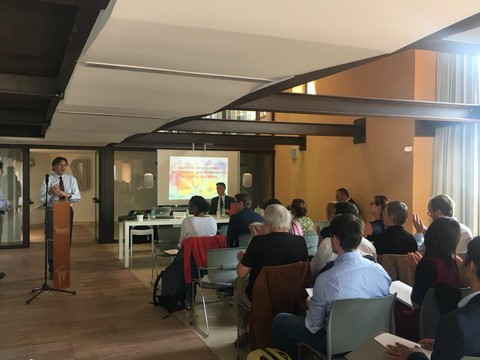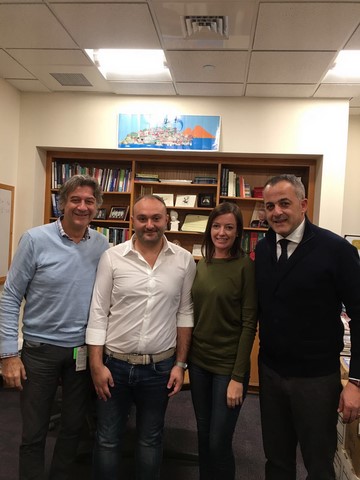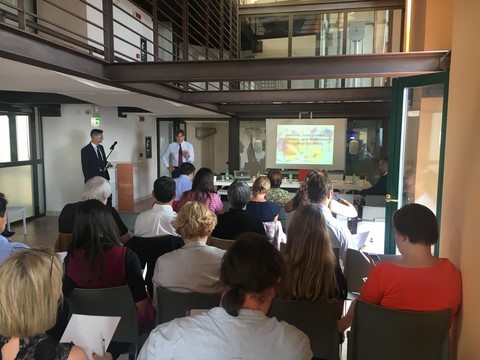GEMMA
Ground-breaking autism research project to explore the interaction between microbiome, metabolome, epigenome and immune function to provide possible diagnostic and preventive approaches
Autism Spectrum Disorders (ASD), which affect 1 in 59 children (1 in 37 boys and 1 in 151 girls) worldwide (a ~40-fold increase since 1960), are a major concern for individuals, families and healthcare systems. According to a study from the London School of Economics, ASDs carry larger societal costs than cancer, heart disease and stroke combined.
As the world faces an ASD pandemic of high-impact proportions, the research community is struggling to understand the multifactorial risk factors leading to its onset. As of today, there are no proven biomarkers of ASD and diagnosis relies entirely on behavioural evaluations. The picture is even bleaker for children born into a family with a sibling already suffering from ASD, as they have a 10 times higher risk of developing ASD. There are currently no preventive steps to reduce or potentially eliminate this risk.
GEMMA (Genome, Environment, Microbiome and Metabolome in Autism) will be the first project to combine a multi-omic approach with robust environmental data to exploit the analysis of the composition and function of the microbiome for personalized treatment and, ultimately, disease interception in at-risk infants.
The goal of GEMMA is to provide solid insights into ASD’s onset and its progression in relation to dynamic changes in abnormal gut microbiota and develop targets for possible treatment and prevention. Observations of these epigenetic modifications that control gut barrier and immune functions will be based on the in-depth evaluation of 600 infants at risk observed from birth and followed over time. These data will be integrated with pre-clinical studies to mechanistically link human microbiota composition and/or function with clinical outcome through mouse models that have been transplanted with stool from human subjects.
In the context of a unique EU-US collaboration network, the project results will be validated on large international ASD networks and integrated with large-scale omics data repositories. Clinical trial data will be shared and harmonized with other international, large-scale omic databases. This research will contribute to the overarching goals of determining the interaction between the dynamic changes over time of the microbiome with the genome and its epigenetic changes, the metabolome, mucosal integrity and immune response that lead to ASD.
The project will support novel patient stratification (personalized treatment) and disease interception (primary prevention) approaches that attempt to modulate gut microbiota to re-establish/maintain immune homeostasis. The biomarkers identified in this project will contribute to a better understanding of the pathogenesis of ASD in at-risk children and the possibility of manipulating the microbiota through pre/pro/symbiotic administration for prevention and treatment, a complete paradigm shift in ASD pathogenesis and early intervention.
GEMMA has assembled a team of scientists from EBRIS; Nutricia Research; Medinok; Bio-Modeling Systems; Euformatics; Theoreo SRL; National University of Ireland Galway; Azienda Sanitaria Locale Salerno; Massachusetts General Hospital for Children (teaching hospital of Harvard Medical School); Consiglio Nazionale delle Ricerche; INRA; INSERM; Utrecht University; University of Tampere; Imperial College London and John Hopkins University. The project has a duration of 5 years and a total budget of €14.2M.
About the Project Coordinator:

The EBRIS Foundation’s mission is to serve as a unique, multidisciplinary research hub focused on using cutting-edge technologies to understand the molecular basis of human diseases in order to translate basic discoveries made in the laboratory into novel therapeutic and preventive interventions, new models of human disease, pioneering therapies, and drug delivery systems that can benefit patients with various diseases. The objective of the EBRIS Foundation is to network with other European research groups to create a top-level research network through the development of projects focused on the interplay between host and environment. Clinical models such as celiac disease, type 1 diabetes, autism and schizophrenia are thoroughly investigated to determine how environmental factors, especially during the first years of life, influence the microbiome, some specific metabolic patterns, and the mechanisms that govern the switch between tolerance and immunity in autoimmune diseases.




